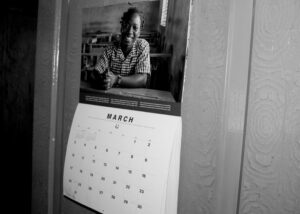Responses to termination of John D. Rempel’s ministerial credential
Re: “Credentials terminated for theologian-academic-pastor,” Nov. 9, page 18.
I am disappointed that this Canadian Mennonite report includes an extensive quote from John D. Rempel, in which he emphasizes his own need for restorative justice rather than the harm he has caused. It is disheartening to then see this emphasis on grace for the offender echoed by some in their online comments.
In the triage of this moment the most important concern must be for the individuals harmed by the actions of a trusted church leader. While our faith calling to “healing and hope” includes those who have caused harm, that should not be the focus for today.
Too often the rush to forgiveness has been used to diminish the weight of wrongdoing, ignore the pain caused or even enable continued abuses of power.
There is grace offered in Mennonite Church Eastern Canada’s statement that “we, as a faith community, must support paths that lead to healing and wholeness for all.”
This journey towards healing begins with a focus on the harm caused to victim-survivors and the grappling of a faith community with the realization of a trust that has been betrayed.
—Tim Wiebe-Neufeld (online comment). The writer is Mennonite Church Alberta’s executive minister.
John D. Rempel is a dear friend to me and countless others. He has mentored and inspired many.
Now is a time for all of us to take stock of the culture we have created—one in which victims of his sexual misconduct have not felt safe to speak out for fear they would not be heard or believed. The pain of holding these experiences within, for all these 30 to 40 years, must have been almost unbearable.
These are the people who need our empathy now, so that justice and mercy may continue to be brought forth. None of us are pure enough to throw the first stone, but all of us can help build a stronger community, which can find better ways for accountability to take place and for healing to occur.
—Carol Ann Weaver (online comment). The writer is professor emerita, Conrad Grebel University College, Waterloo, Ont.
I am a survivor of ministerial sexual misconduct referenced in Canadian Mennonite’s recent online article, “Credentials terminated for theologian-academic-pastor” and have followed the subsequent online dialogue at bit.ly/3eKKAMe.
I am grateful for the support of others, encouraging my own healing. The online dialogue included expert voices, publicly naming truth and peeling back the legacy of silence. Their energy, conviction and courage bring a much-needed perspective to this discourse.
This disclosure is difficult for those who must reconcile the behaviour of the perpetrator with the person they know, love and respect. That doesn’t lessen the harm done by someone who violated accepted professional boundaries with individuals, breaching the policies and professional standards expected of him by the institutions he served. The passage of time and his noted contribution to the church do not alter the impact of what happened for me.
Individuals in positions of leadership and influence, by their online comments, undermine the process carried out by Mennonite Church Eastern Canada, which followed publicly posted procedures, including an appeal process, which no party chose to access. The regional church used the services of skilled, impartial, third-party resources for its fact-finding investigation. The commitment of MC Eastern Canada and Conrad Grebel University College to following their procedures, supporting those harmed, showing compassion for the perpetrator, and considering what, in their own culture, may have allowed such things to happen, all serve as protective factors going forward.
The inference in one online letter of “false memory syndrome” on the part of victims felt particularly silencing to me when I know well what happened.
A temptation to categorize sexual abuse into degrees of seriousness ignores the dynamics in this circumstance—breach of trust and abuse of power, sexual or otherwise, and associated trauma. That violation, and its lasting impact, have harmed me more than the actual sexual acts themselves.
Suggestions that I, or the institutions John D. Rempel served, need to forgive and be reconciled with the perpetrator with alacrity, are misplaced. This is his work. I pray that he will have supports to help him do that.
—Name withheld at author’s request
Point: Compassion needed for both victims and perpetrator
I share deep sadness and grief over John D. Rempel’s sexual misconduct and the withdrawal of his ministerial credentials. It is a devastatingly costly and painful moment for those who came forward, for John, his family and friends, and the church he has served faithfully for decades. For church leaders and institutions to take a clear stand with those who have been harmed is entirely in keeping with Jesus, who identifies himself with the most vulnerable and who expresses unmitigated outrage at their being abused (Matthew 18:1-9). Following Jesus as disciples demands it.
I am just as convinced, however, that the church and its leaders need to stand with those who have done the harm, who have sinned—not to defend or diminish their behaviours, but to stand with them in patient, loving hope for full acknowledgment and true repentance, for the experience of forgiveness, and for restoration to full fellowship/koinonia.
It means not only pledging to offer every assist-ance to those who have been harmed, but also to do everything possible to recover the offender from the wreckage of sin, shame and brokenness. In the body of Christ, we do not cancel each other.
On standing with the victims/survivors, the church and school statements on John’s discipline are strong and clear. On standing with the one who has offended, they are largely silent. If this concern is there in the hearts of those who have carried the awfully heavy burden of dealing with this tragic case, then I am deeply disheartened that we cannot find words or means to express such yearning for “healing and hope” for the one who has brought harm on others, and to offer the church’s resources and creative imagination to that end. That must be part of our repertoire if we truly wish to be a peace church. Following Jesus as disciples demands it.
—Tom Yoder Neufeld (online comment)
Counterpoint: No quick forgiveness for perpetrator
It will not be my practice to respond to every published comment that is made about the findings of misconduct against John D. Rempel. Given that Tom Yoder Neufeld is an emeritus faculty member at Conrad Grebel University College, I am obliged to publicly respond to his letter.
First, I have personally received responses to Yoder Neufeld’s comments from some of the survivors in this case. They unfortunately experienced the letter as shaming them for coming forward, and pressuring them to quickly forgive. I have communicated directly with Yoder Neufeld about his letter. I believe that he regrets how his words were received, and that he did not intend to communicate these things.
Second, Yoder Neufeld’s letter states that the church and the college have been “largely silent” in expressing concern for the offender in our public statements, and suggests that we have neglected values of mercy and forgiveness. This is untrue. The suggestion that we wish to “cancel” the offender is mere rhetoric that ignores what we actually said.
My official statement calls on John’s community to continue supporting him, not to abandon or to shun him. I also invite prayers for “everyone involved.”
As our community begins the long process of coming to grips with this trauma, I recommend reading Ecclesiastes: “To everything there is a season.” There is a time and a place for everything. The day may come when we can talk of forgiveness, but now is not that time. Now is the time to confront painful truths. And while I respect everyone’s right to speak out, this might also be a time to more carefully consider the impact of our words, and to listen well.
—Marcus Shantz (online comment). The writer is president of Conrad Grebel University College, Waterloo, Ont.
The original longer versions of these two Point-Counterpoint letters can be read online at bit.ly/3eKKAMe.
Reader complains about ‘Leaf advertorial’
Re: “Cheering for the Leafs!” Sept. 28, page 24.
It is interesting to note that your magazine has stooped to doing advertorials. Your “Leaf” article should have been labelled as such.
Are electric cars more carbon and socially responsible than internal-combustion engine (ICE) cars? The electric cars’ production carbon footprint is considered double that of the typical ICE car. It takes eight years to even out this carbon discrepancy.
We are not even thinking about the mining methods and desecration of the Chilean uplands and Tibetan highlands, or the children digging with their hands and dying while mining for cobalt in the Democratic Republic of the Congo. I have witnessed children digging for precious minerals in the Congo while working there as a Mennonite Central Committee volunteer for three years. Not a pretty sight.
Also, I saw no mention that 91 percent of Alberta’s electricity is derived from fossil fuels, from which over half is derived from coal-burning plants.
Do these “righteous” Leaf owners have no pride? Can there not be any objectivity in your articles?
Also, why would anyone buy a Nissan Leaf? It is boring to drive, slow to charge, uses old technology, is limited in range and is as stylish as a Lada. These Leaf owners could at least drive a Tesla, which is stylish, extremely well built, technologically more advanced and constantly upgraded, and is fast and fun to drive.
I drive a Tesla and I am a hypocrite! But nothing is more fun to drive than a Tesla.
—David Wall, Fort Langley, B.C.
Reader thankful for story about ‘courage and persistence’
Re: “Defeating Goliath,” Sept. 14, page 26.
Thank you for carrying this story about how, 40 years ago, a modest group of people from the Warman, Sask., area, organized resistance to a planned uranium refinery. I was no longer living in that area when this took place, but I will always be grateful for their courage and persistence.
—Bill Janzen, Ottawa
Online comments related to the John D. Rempel article are now closed. If you wish to respond, send a short letter (maximum of 300 words, addressing the topic, not individuals) to letters@canadianmennonite.org. It will be considered for inclusion in the Readers Write section of the print edition. –Virginia A. Hostetler, Executive Editor








Leave a Reply
You must be logged in to post a comment.